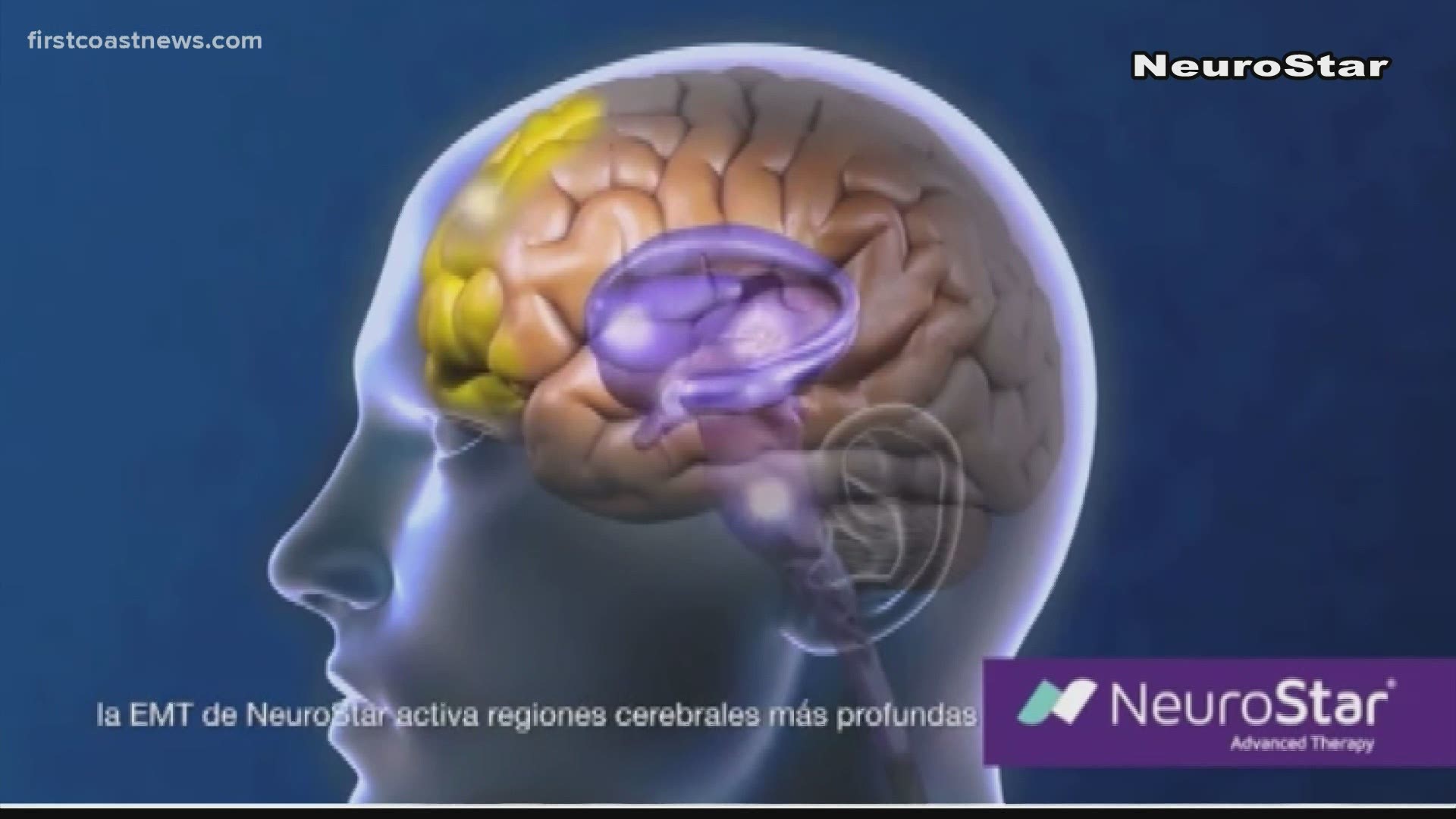JACKSONVILLE, Fla. — We're not only battling a pandemic, but COVID-19 has also forced us to face a mental health crisis across the country as people deal with job uncertainty and isolation.
Numbers from Mental Health America show more than 60 percent increase in depression screening especially among young adults meaning a big increase in people seeking help.
Medication is always an option, but when medication doesn’t work, there are other treatments. Baptist Health psychiatrist Dr. Shariq Refai performs a brain stimulation treatment at Baptist Behavioral Health.
There's no pain with the treatment. He says patients describe it as a tapping feeling on their head.
The full name is Transcranial Magnetic Stimulation or TMS therapy. It's a non-invasive treatment for those who have not had success with medication. Doctors use a pulsed magnetic field to stimulate the prefrontal cortex. Dr. Refai said that is the part of your brain that regulates mood.
Refai says this treatment is for people with severe depression, major depressive disorder, and people who have tried medication without success.
“Their quality of life is affected," Refai said. "They’re not really enjoying living. They are just kind of surviving....a lot of times it’s like they are looking for hope. They are looking for somebody to help them with a debilitating illness they can’t really do anything about and a lot of time they’ve tried multiple things and nothing has worked,
Refai says he's been doing this treatment since 2014 and it has a 70 percent success rate. For those who seek treatment, he says they are usually at their lowest lows.
“Usually (people with) severe depression you can have suicidal thoughts, isolating, withdrawn," he said. "You may have questions of even is it even worth it to stick around in this world. Generally, that’s the severity that we are looking at for this treatment.”
It’s a treatment, not a cure.
If you are struggling, we want you to know you are not alone. The National Suicide Prevention Lifeline is always there to answer your call at 1-800-273-8255.

